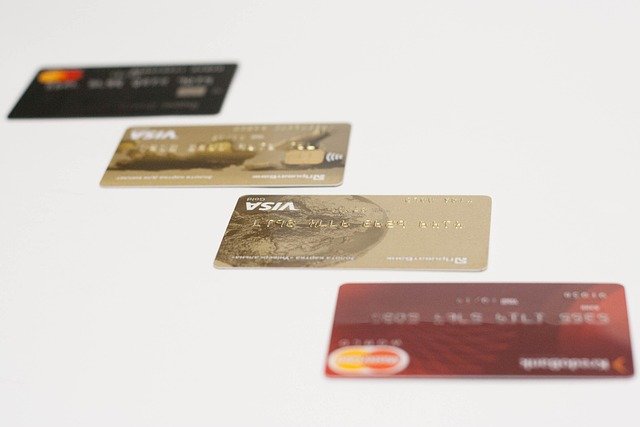Navigating Credit Card Applications for Residents of Germany
Residents of Germany can benefit from a thorough understanding of the credit card application process. Familiarity with what lenders evaluate during the application can significantly increase the chances of approval. Additionally, recognizing common reasons for rejection can help applicants address potential issues and improve their financial profiles before applying.

Germany’s financial landscape presents unique considerations when it comes to credit card applications. The country’s banking system operates with distinct regulatory frameworks and assessment criteria that applicants must navigate carefully. From documentation requirements to credit scoring systems, understanding these elements can make the difference between approval and rejection.
Understanding Credit Card Applications in Germany
The German credit card application process requires specific documentation and meets stringent regulatory standards. Applicants typically need to provide proof of identity through a valid passport or national ID card, proof of residence such as a registration certificate (Meldebescheinigung), and evidence of regular income through pay slips or tax returns. Many banks also require applicants to hold a German bank account, as credit cards are often linked to existing current accounts. The SCHUFA credit scoring system plays a central role in application decisions, as it tracks credit history and financial behavior. Unlike some countries where credit cards help build credit history, German lenders prefer applicants who already demonstrate responsible financial management. International residents may face additional requirements, including proof of work permits or visa documentation, and some institutions may require a minimum period of German residency before considering applications.
Factors Influencing Lender Decisions for Credit Cards
German financial institutions evaluate several key factors when reviewing credit card applications. Income stability ranks among the most important considerations, with lenders typically requiring proof of regular employment or steady income streams. The SCHUFA score serves as the primary creditworthiness indicator, ranging from 0 to 100, with higher scores reflecting better credit behavior. Existing debt obligations, including loans, mortgages, or other credit commitments, influence decisions as lenders assess debt-to-income ratios. Employment type matters significantly, with permanent contracts (unbefristete Verträge) viewed more favorably than temporary or freelance arrangements. Account history with the applying institution can provide advantages, as existing customers with positive banking relationships often receive preferential consideration. Age and residency duration also factor into decisions, with longer-term residents and those over certain age thresholds sometimes receiving better terms. Some institutions consider savings and asset holdings as indicators of financial stability, while others focus primarily on income and credit history.
Common Reasons for Rejection of Credit Card Applications
Several factors commonly lead to credit card application rejections in Germany. Negative SCHUFA entries from past payment defaults, insolvencies, or unpaid bills create significant obstacles, as these remain on record for three years or longer depending on the severity. Insufficient income relative to living costs and existing obligations frequently results in denials, particularly when debt-to-income ratios exceed lender thresholds. Short residency periods in Germany raise concerns about stability and ability to track payment behavior. Incomplete or inaccurate application information triggers automatic rejections at many institutions. Multiple recent credit applications can negatively impact SCHUFA scores and signal financial distress to lenders. Temporary employment contracts or irregular income patterns make lenders hesitant due to repayment uncertainty. Lack of German bank account history provides insufficient data for risk assessment. Some applicants face rejection due to age restrictions, as certain cards require minimum ages of 21 or 25. Non-EU residents without permanent residency status encounter additional hurdles, and some institutions maintain internal policies limiting approvals for specific visa categories.
Improving Your Application Success Rate
Several strategies can enhance credit card application prospects in Germany. Checking your SCHUFA score before applying allows you to identify and address any errors or outdated information that might negatively impact decisions. Building a relationship with a German bank through a current account demonstrates financial stability and provides the institution with direct insight into your banking behavior. Ensuring stable employment and maintaining consistent income streams for at least six months before applying strengthens your profile. Reducing existing debt obligations improves debt-to-income ratios and signals responsible financial management. Avoiding multiple simultaneous applications prevents negative impacts on your SCHUFA score and reduces red flags for lenders. Providing complete, accurate documentation with all required supporting materials eliminates administrative rejection reasons. Some applicants benefit from starting with prepaid or debit cards to establish positive payment patterns before applying for traditional credit cards. Waiting until you have established longer German residency and employment history can significantly improve approval odds for those new to the country.
Alternative Options for Building Credit Access
When traditional credit card applications prove challenging, several alternatives exist. Prepaid credit cards function like standard cards for purchases but require pre-loading funds, eliminating credit risk for issuers while providing card functionality. Debit cards linked to current accounts offer similar payment convenience without credit features, and responsible use contributes positively to banking relationships. Charge cards requiring full monthly balance payments represent a middle ground, offering credit functionality with reduced risk for lenders. Some banks offer secured credit cards backed by deposit guarantees, making approval easier for those with limited credit history. Digital banking providers and fintech companies sometimes apply more flexible criteria than traditional banks, though they may offer different terms. Store-specific cards from major retailers often have lower approval thresholds and can help establish positive payment history. Building credit through other means, such as mobile phone contracts or installment purchases with timely payments, gradually improves SCHUFA scores and future application prospects.
Navigating the German Banking System as a Newcomer
International residents and recent arrivals face specific challenges in the German credit card landscape. Opening a basic current account should be the first priority, as this establishes your presence in the German banking system and provides the foundation for future credit applications. Many banks offer accounts specifically designed for international customers with multilingual support and simplified documentation requirements. Obtaining your SCHUFA report early helps you understand your starting position and identify any unexpected entries. Some institutions specialize in serving expat communities and may have more experience evaluating international credit histories or employment situations. Building a track record through regular transactions, maintaining positive account balances, and avoiding overdrafts creates favorable impressions. Patience proves essential, as establishing sufficient history for credit card approval typically requires six months to a year of demonstrated financial stability. Seeking advice from customer service representatives about specific requirements and timelines helps set realistic expectations and identify the most suitable products for your situation.
Successfully navigating credit card applications in Germany requires understanding the unique aspects of the German financial system, from SCHUFA scoring to documentation requirements. By addressing the factors that influence lender decisions and avoiding common rejection triggers, applicants can significantly improve their approval prospects. Whether you’re establishing yourself in Germany for the first time or looking to expand your financial options, taking a strategic approach to credit card applications will serve you well in the long term.




